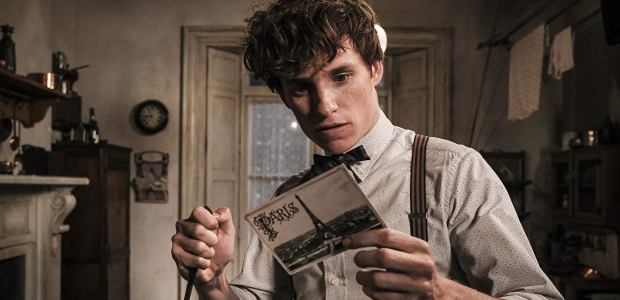Two years ago, the first Fantastic Beasts movie started a new series in the Harry Potter franchise but did not pander to franchise building, something that has become the norm for most early movies in a planned series. This sequel though falls into that trap. Individual installments of successful franchises have a complete story that works within that single film, best demonstrated by movies of the MCU, the Harry Potter series, and even the Fast & Furious franchise. In contrast, The Crimes of Grindlewald is $200 Million production budget spent on what is essentially a 10-minute recap before the next movie.
It is 1927. The world is on the brink of another great war. Meanwhile, Grindlewald (Johnny Depp) has escaped and Credence (Ezra Miller) is missing, while Newt Scamander (Eddie Redmayne) has been grounded. They will all converge in Paris, where old friends unite, familiar names surface, fantastic beasts escape (and are caught) and much CGI ensues. Meanwhile, a young Professor Dumbledore back in Hogwarts recognizes the threat of Grindlewald to the larger wizarding and non-magical community.
J K Rowling, in her second screenwriting credit, seems to be the biggest culprit when it comes to this movie’s failures. The story is uneven, frequently taking a visibly jagged route from sub-plot to sub-plot, trying to include every idea that may have looked good in an early script draft (or perhaps in a finished book). Her better writing skills show when a scene lasts longer than a few minutes. Cases in point: when Dumbledore first meets Newt, and when Newt and Tina (Katherine Waterston) break into the French Ministry of Magic. These scenes build and carry through well to their end-game. Though these are few, they stand out as the better parts of the movie. They also lend credibility to the idea that director David Yates is at his best within individual scenes, but perhaps had little creative control of the final movie. (This is reminiscent of his first Harry Potter work Order of Phoenix, while his influence and the quality of movies steadily improved with each subsequent Harry Potter film).
By juggling too many plot-lines, in addition to subplots, the movie eventually becomes too convoluted for its own good. Part of the unravelling requires an exposition-laden last act that may as well be text scrolling on screen. The few delights of the movie come in the form of Jude Law and Eddie Redmayne, both performing with an infectious charm that beg for a better movie. At the other end of the spectrum, Johnny Depp is never more than “Johnny Depp in costume and make-up”, further emphasizing the opportunities lost when he replaced Colin Farrell from the first movie (I am aware of the in-story reason, and do not believe it was the least bit mandatory).
One area where fans will undoubtedly be happier than with the first movie is the connections that The Crimes of Grindlewald forms to the larger mythology of the Harry Potter world. Characters, events, objects and family histories are hinted, explored and even wrecked. The audience is left questioning possibilities for the next two years (considering Fantastic Beasts 3 is scheduled for 2020), even at the expense of not being entertained this time round. With three more movies yet to come in this series, there is little doubt left that casual viewers have been alienated and the only ones who will continue to be interested are the fans.
Rating: 




